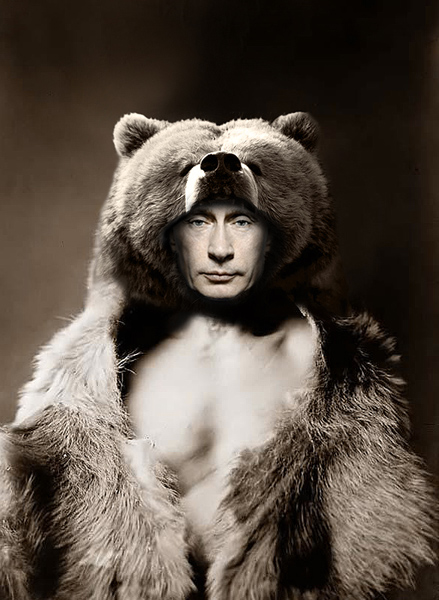Benjamin Moles
In 2002, I remember writing an undergraduate paper analysing Russia in the Asia-Pacific post 1945 and concluded that Russia would only prosper as an Asia-Pacific regional power if it stopped clinching onto the idea that it could remain a global ‘super power’ and re-focussed on becoming a regional power- in the Asia-Pacific. The return of Vladimir Putin to the Russian presidency last week coupled with the impending APEC 2012 meeting to be held in Vladivostok in September got me thinking- is Russia considered an Asia-Pacific power any more today than it was a decade ago?
Russia, like the Romanov eagle that graces the Russian national coat of arms is truly Janus faced, however, a stark contrast exists between its two diametrically opposed faces. Whereas Russia’s traditional heart (historical, political, cultural, economic and military) beats and is undeniably located to its west, Russia has always struggled, and maintains to today, in translating just looking east- from Moscow- to actually being there and perhaps more importantly, convincing other regional powers of its Asian credentials.
The greatest barrier to Russia becoming a recognised Asia-Pacific regional power, a hurdle it consistently fails to surmount, is Russia. The Russian governing elite have little to no interest in shifting their traditional preoccupation with the west and re-focus on the east. Russia has constantly failed to identify with Asia through fear of detracting from its status as a global great power- still viewing itself as an independent pole in a multipolar world order (It appears that old habits do die hard). Russia’s current three foreign policy priorities are: The former Soviet space (its near-neighbourhood); Europe and the US; and finally the Asia-Pacific. However, Russia struggles to outline a consistent strategy for translating its large foreign (and domestic) policy aspirations into achievements. At the end of the day, despite Russia’s inclusion in many regional multilateral-institutions, Russia still continues to be viewed as an Asia-Pacific regional outsider.
Internally, Russia faces numerous problems. Russia has a declining population, of its 143 million people only around 4% of them live in the Russian Far East (RFE) and despite efforts to attract migrants from European Russia to move to the RFE, more families have migrated (and continue to) from the RFE than to it (10% have left since 1991). Numerous plans over the years to develop the region, like the current ‘Economic and social Development of the Far East and Trans-Baikal Region until the Year 2013’ haven’t transpired beyond the current ‘window dressing’ of Vladivostok for the 2012 APEC summit- the region remains largely neglected.
On the positive side, the RFE holds vast resources including oil, gas and timber that are essential for Asia’s growth (where it is more viable to transport to than the 5000 kms back to Moscow). In the future Russia hopes to position itself as the bridge between Europe and Asia. However, Russia currently lacks the internal transport infrastructure to viably and reliably link Europe with the Asia-Pacific. Furthermore, Russia lacks the technology to develop and extract its deep sea oil and gas deposits itself and multi-national companies will be wary of investing in Russia based on negative previous experiences. European and Asian states alike are cautious and question Russia’s reliability as an energy provider (the 2009 Russia-Ukraine dispute) and are more likely to hedge their energy needs- can Russia overcome these major trust hurdles?
Two external factors impeding a greater Russian role in the Asia-Pacific remain China and the US. China is Russia’s most important ‘strategic partner’- however, Russia plays very much the junior role in the partnership and it remains an unbalanced one in which Russia has a greater need for China than China of Russia. Also, this close affiliation impacts on Russia’s ability to forge closer ties with other Asia-Pacific states, which remain cautious of the China-Russia relationship. US-Russia relations have historically been ‘turbulent’ and needn’t be explored in any depth, only to add that the US remains an Asia-Pacific power with extensive regional presence and extends strategic alignments with several regional states, most importantly Japan and South Korea, and that these remain important factors in Russia’s, maintained ‘Cold-War like’, global strategic calculus. Despite suggestions of possibly forging a closer US-Russia partnership to balance China- almost like the 1972 US-China rapprochement in reverse- this is probably a bridge too far!
Russia’s challenges to becoming a recognised Asia-Pacific power remain multifarious. I am forced when concluding my nostalgic look back at Russia’s achievements post 1945 and in particular over the past decade (also in offering my prognosis for the future) to return to the same conclusion I did back in 2002: Russia might better prosper as an Asia-Pacific regional power if it stops clinching onto the idea that it can remain a global ‘super power’ and re-focuses on becoming a regional power- in the Asia-Pacific. Today, Russia continues its struggle in translating grand aspirations into actual achievements: Russia does want to be a regional power- only in multiple regions.
Finally, thinking to the future I wonder two things: will I be able to wheel out the same conclusion (and will it hold true) in another 10 years, and will Vladimir Putin still be President of Russia?!
Benjamin Moles has recently completed his Masters in International Security Studies at the University of Sydney. (bmol4353@uni.sydney.edu.au). Follow on Twitter @bwmoles

